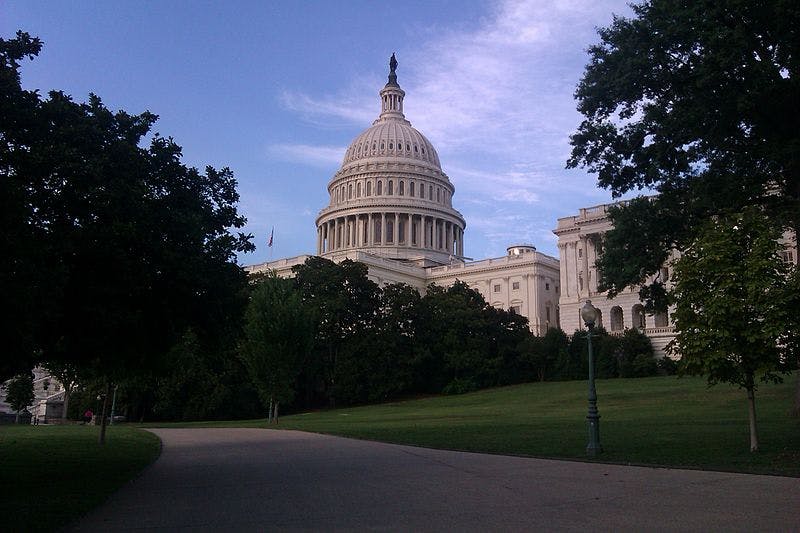House Republicans Giving Democrats Big Victory on Spending
A warning from Margaret Thatcher beyond the grave.

The new Speaker of the House, Kevin McCarthy of California, is herding members of his narrow Republican majority like so many cats, drawing support from conservative holdouts by agreeing to cap spending at 2022 levels. Although Democrats are feigning outrage, they are being given a huge victory.
“The deal,” Roll Call writes, “between Speaker Kevin McCarthy and his conservative detractors lays a foundation for the massive spending cuts that some want, but it also sets up a daunting challenge for GOP lawmakers who want to keep the government functioning…”
That lays out the conventional wisdom in neat fashion: Calling current budgetary levels “cuts,” as if Washington exists to spend more each year than the last, and that without various federal agencies given blank checks, citizens cannot so much as tie their shoes. Forgotten is the reminder in President Reagan’s 1981 inaugural address where he said, “We are a nation that has a government, not the other way around.”
As when local municipalities threaten that reining in costs would devastate firefighters and police, the Democrats warn that the military is at risk, with the Washington Post writing that sticking to 2022 levels “would effectively reduce defense spending by about 10 percent,” as if there are no other items in the budget.
It’s the government’s inflationary spending that has boosted the costs of everything from fuel to food, with fighting Covid and the war in Ukraine used to justify borrowing and spending. The only solution is to tighten our belts, but Republicans seem content to embrace largess.
In 2019, the last year before Covid, Washington spent $4.4 trillion, and the national debt was $16.8 trillion. Last year, Congress laid out half a trillion more, and the debt has almost doubled to $31.5 trillion. Despite this, 18 Republicans in the Senate backed the Democrats’ lame-duck pork-o-rama wish list last month.
House Republicans could point to these numbers when there’s talk of “austerity” and “draconian cuts,” and ask if we missed living in some hellscape in 2019. They might also note that with the pandemic’s forced economic idleness over, we can’t get back to pro-growth policies and eliminate unnecessary expenditures related to it.
In a memoir about serving as the United Kingdom’s prime minister, “The Downing Street Years,” Margaret Thatcher described similar squishiness among the Conservative Party when she took the reins in 1979, facing a nation racked by economic stagnation, over regulation, and a crisis of confidence but timid about rolling anything back.
Republicans today, like Conservatives before Thatcher, are content to sit on the lap of leftists and pretend to drive the car. They thrill at being able to toot the horn and click the turn signal but aren’t allowed to reach the pedals, happy to have a hand on the wheel while Democrats hit the gas.
“At the level of principle, rhetorically and in opposition,” Thatcher wrote, the Tories opposed leftist doctrines “and preached the gospel of free enterprise with very little qualification. Almost every post-war Tory victory had been won on slogans such as ‘Britain Strong and Free’ or ‘Set the People Free,’” which had echoes of today’s Republican rhetoric.
“But in the fine print of policy,” Thatcher wrote, “and especially in government, the Tory Party merely pitched camp in the long march to the left. It never tried seriously to reverse it.” The Tories paid lip service to privatization, tax policy, regulation, and subsidies but delivered little that endured.
As for the welfare state, Thatcher said, Conservatives “boasted of spending more money than Labour, not of restoring people to independence and self-reliance. … Labour moved Britain towards more statism; the Tories stood pat; and the next Labour Government moved the country a little further left. The Tories loosened the corset of socialism; they never removed it.”
A Civiqs poll taken on Election Day found 68 percent of Americans felt the nation was on the wrong track, and Republicans were elected to change that direction on spending, which is the sole responsibility of the House. So far, they look uncomfortable in the driver’s seat, preferring to let the big spending roll happily along to economic ruin.

